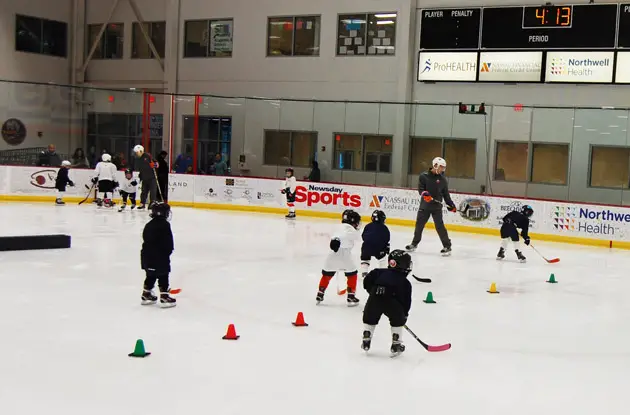As the school sports seasons start up again, traumatic brain injuries (concussions) should be a concern to parents of student athletes. Dr. Cynthia R. Green shares four things you need to know about TBIs, from helping to prevent them to the signs that your child may have a TBI.
Now is the time when we revel in the remaining days of summer, and get in our last licks of outdoor fun (bike ride, anyone?). Football season is coming and high school sports practices begin. It’s a great time to learn more about a brain health issue that can affect any of us at any time, no matter our age, gender, or athletic ability.
Traumatic brain injury (TBI), also known as concussion or closed head injury, is a major public health concern. The Centers for Disease Control report between 1.7 and 3.8 million cases of TBI in the United States occur annually. This is an astounding rate, especially when compared to the annual incidence rates of more recognized ailments such as breast cancer (176,300) or HIV/AIDS (43,681). Yet experts agree that even these high numbers probably grossly underestimate the incidence of such brain injuries, as they often go undiagnosed and unreported.
In addition, TBIs are associated with approximately 30.5 percent of injury-related deaths each year. Clearly this is something we should all know more about.
What is your TBI IQ? Here are four things about TBI that you may not know:
TBIs can show up in many ways.
A TBI is caused by impact to the brain resulting from a direct or indirect impact to the head, face, neck, or elsewhere. You do not need to lose consciousness or experience serious symptoms at injury to have had a TBI. Additional symptoms of TBI include behavioral or emotional changes, diffuse physical complaints such as headaches, sleep disturbance, and cognitive changes, including slower reaction times, difficulty concentrating, or feeling like you can’t think clearly or are in a “fog.” The more subtle symptoms associated with TBI can make it harder to recognize and easier to shrug off. However, the growing body of clinical research underscores the importance of recognizing, assessing, and treating all TBIs, no matter how “minor.”
TBIs can have long-term consequences.
More and more studies suggest that having a TBI, especially more than once, may have long-term consequences. Several studies in retired professional football players with a history of multiple TBIs have found that they are at an increased risk for memory impairment and dementia. In addition, Canadian researchers recently reported that former athletes who suffered a concussion over 30 years previously showed decreased cognitive performance and abnormal findings on brain MRI when compared with a similarly aged group who did not sustain such injuries. Taken together, these studies raise questions about the long-term impact of TBIs for all of us, even if we do not play a professional sport. A review published last month by leading experts in the field proposes that repeated TBIs may cause a cascade of physiological changes in the brain that accelerate cognitive aging.
TBIs can affect anybody, even you and me.
Unlike most brain health issues, TBI is of concern for all of us, no matter what our age, gender or occupation. The age groups at greatest risk for TBI are children newborn to age 4, teens, and adults older than 65. Falls are the second most frequent cause of TBIs among the frail elderly and the very young, with adults older than 75 having the highest incidence of reported TBIs.
About 50 percent of reported TBIs are the result of motor vehicle, bicycle, or pedestrian-vehicle incidents. Car accidents are the highest cause of head injury in adolescents. Teens are also at greater risk for sports-related concussions, which often may go unnoticed or unreported. Studies suggest that young female athletes may be more vulnerable to TBIs. In a report in the June 2012 issue of the American Journal of Sports Medicine, researchers at Michigan State University found that younger female athletes take longer to recover from TBI-related symptoms than their male counterparts.
Finally, our troops are experiencing higher rates of documented TBIs, in part due to changes in combat technology. TBI has been called “the signature wound” of the Iraq and Afghanistan wars due to the use of improvised explosive devices. Sources estimate that as many as 20 percent of our soldiers serving in these areas will experience a TBI.
Here is what you should do about TBIs.
As research interest in closed brain injury grows, there is much we can learn about TBI, including what we can do to “mind our brains” when it comes to this increasingly common brain health concern. Here are a few steps to consider to lower TBI risk for yourself and others in your family, and some things you should know if you or someone you care for experiences a TBI:
Protect yourself. There are many common-sense steps we can all take to lower our risk for TBI. Wear helmets (and insist that others do as well) for high impact sports, such as cycling, skateboarding and skiing. Your helmet should fit snugly and comfortably, and it should be strapped. Wearing a helmet unstrapped may seem “cool,” but a helmet won’t do much if it flies off your head at impact. Parents need to wear helmets, too. Insisting that your kids wear helmets and then leaving them off your own head isn’t setting a very good example. Always use seat belts in the car—it’s not only a good idea but also the law in most states. Finally, look for and remove tripping hazards around the house, such as small area rugs or electric cords, all of which are a very significant trip risk especially for older adults.
Take care of your athlete. If you have a child who participates in sports, check if their school or team requires baseline cognitive testing. Such tests offer a guideline when assessing a TBI, and many school districts now mandate such tests for participation in their athletic programs. Insist that your athlete use appropriate protective gear. Finally, if your athlete is injured, make sure that they receive appropriate assessment and treatment and are given plenty of time to heal completely and are cleared by a doctor prior to returning to play. Be sensitive to any uncharacteristic changes in mood, attention, or academic performance, which may be signs of a missed TBI.
Anything else I should know? Researchers are just beginning to understand more about the reasons individuals have different courses of outcome from TBI. One theory recently discussed suggests that having greater cognitive resources, or Cognitive Reserve, may reduce risk for the long-term consequences seen in repeated TBIs. This argument is particularly interesting from a brain health perspective, as studies have previously shown that folks who are intellectually engaged over their lifetime may have an associated lower risk for dementia, perhaps due to greater Cognitive Reserve. Certainly staying intellectually engaged is simply just a good idea, as such activities appear to be protective for long-term brain health.
Want more information on concussions? Visit the Centers for Disease Control‘s website to learn more.
How to Prevent Concussions and Sports Related Injuries in Children and Teens
How to Know When Head Injuries are Serious





















